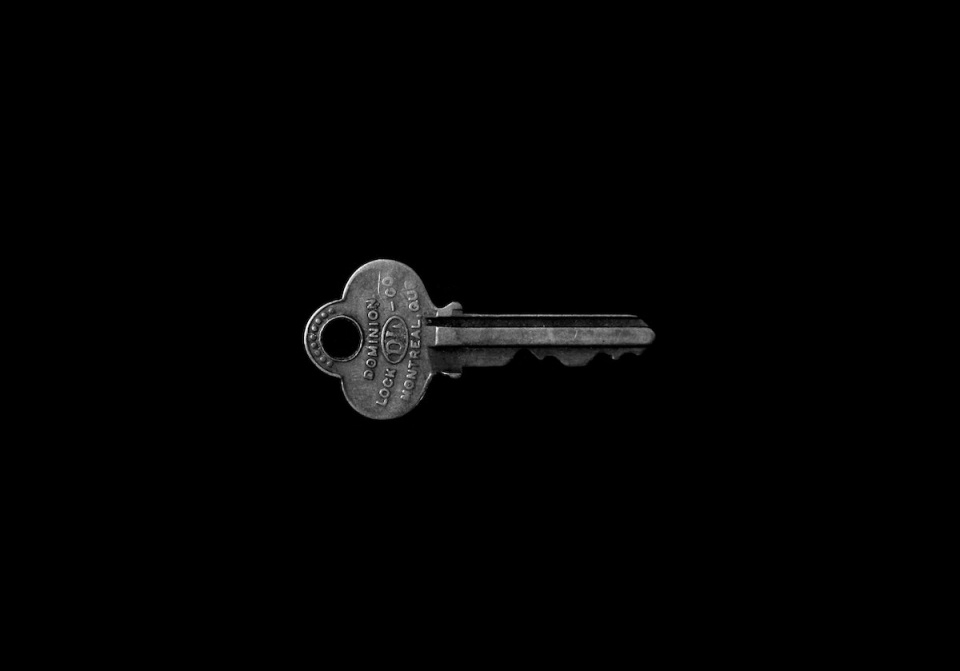The Sunday Project

Flesh and Blood
Twenty-first Sunday in Ordinary Time |
By Darby DeJarnette

Thus says the LORD to Shebna, master of the palace: “I will thrust you from your office and pull you down from your station. On that day I will summon my servant Eliakim, son of Hilkiah; I will clothe him with your robe, and gird him with your sash, and give over to him your authority. He shall be a father to the inhabitants of Jerusalem, and to the house of Judah. I will place the key of the House of David on Eliakim’s shoulder; when he opens, no one shall shut when he shuts, no one shall open. I will fix him like a peg in a sure spot, to be a place of honor for his family.”
Oh, the depth of the riches and wisdom and knowledge of God! How inscrutable are his judgments and how unsearchable his ways! For who has known the mind of the Lord or who has been his counselor? Or who has given the Lord anything that he may be repaid? For from him and through him and for him are all things. To him be glory forever. Amen.
Jesus went into the region of Caesarea Philippi and he asked his disciples, “Who do people say that the Son of Man is?” They replied, “Some say John the Baptist, others Elijah, still others Jeremiah or one of the prophets.” He said to them, “But who do you say that I am?” Simon Peter said in reply, "You are the Christ, the Son of the living God.” Jesus said to him in reply, “Blessed are you, Simon son of Jonah. For flesh and blood has not revealed this to you, but my heavenly Father. And so I say to you, you are Peter, and upon this rock I will build my church, and the gates of the netherworld shall not prevail against it. I will give you the keys to the kingdom of heaven. Whatever you bind on earth shall be bound in heaven; and whatever you loose on earth shall be loosed in heaven.” Then he strictly ordered his disciples to tell no one that he was the Christ.
There are times in life when the desolations that we experience seem to be overwhelming. We lose sight of the things that matter, we neglect our responsibilities and we feel guilty for not being able to take on all of the injustice that we see in the world. When Jesus asks St. Peter who he thinks he is, he replies:
“You are the Christ, the Son of the living God.”
To this, Jesus replies:
“Blessed are you, Simon son of Jonah. For flesh and blood has not revealed this to you, but my heavenly Father. And so I say to you, you are Peter, and upon this rock I will build my church, and the gates of the netherworld shall not prevail against it.”
As people who are often marginalized in the Church and in the world, we’ve learned that we can’t rely on flesh and blood to reveal God to us. Sometimes we are even left without allies to show us God’s mercy. Against all odds, we believe because the Holy Spirit has moved us to do so. In believing in this way, our faith becomes the faith upon which the entire Church rests. Jesus continues:
“I will give you the keys to the kingdom of heaven. Whatever you bind on earth shall be bound in heaven; and whatever you loose on earth shall be loosed in heaven.”
While this passage is usually interpreted as the authority given to the Magisterium to “preach and teach,” it could represent a more universal call for the entire Body of Christ—which includes the laity—to discern the paths forward. Those who are united to Christ through the work of the Holy Spirit have a responsibility to draw the Kingdom of Heaven forth from their circumstances in the world, regardless of how hopeless we may feel in the present moment.
These things which we call forth in the world will not be manifested through our own power, but through the power we have in being united to Christ. In her autobiography, Story of a Soul, St. Thérèse writes:
“He nourishes me at each moment with a totally new food; I find it within me without my knowing how it is there. I believe it is Jesus Himself hidden in the depths of my poor little heart: He is giving me the grace of acting within me, making me think of all He desires me to do at the present moment.”
Like Thérèse, we are sometimes ignorant of the ways in which the Holy Spirit works through us and uplifts us. Even in desolation, we can trust that Christ will be united with our desires in order for us to be fruitful in the world. We accept his call to determine the contours of heaven through our just actions and sincere prayers. We co-create with God—not through the work of flesh and blood—but through the work of the Spirit. No matter how “stuck” we may feel, God is always drawing our souls closer to the beatific vision. As long as we hold on to the tiniest shred of hope that the darkness will not prevail, we can be assured that our suffering is temporary and that the mystical union with God which we seek is just beyond the horizon.